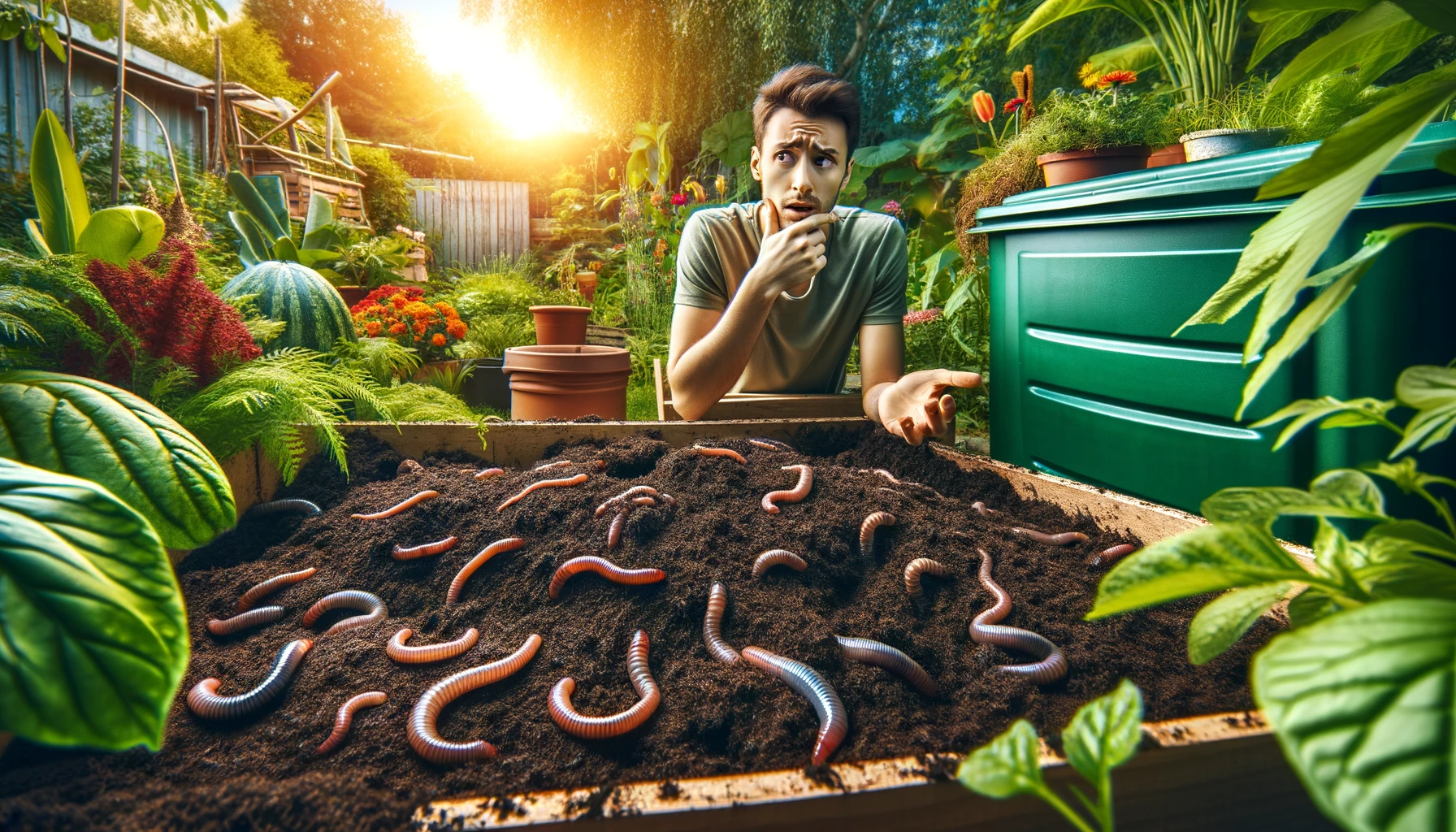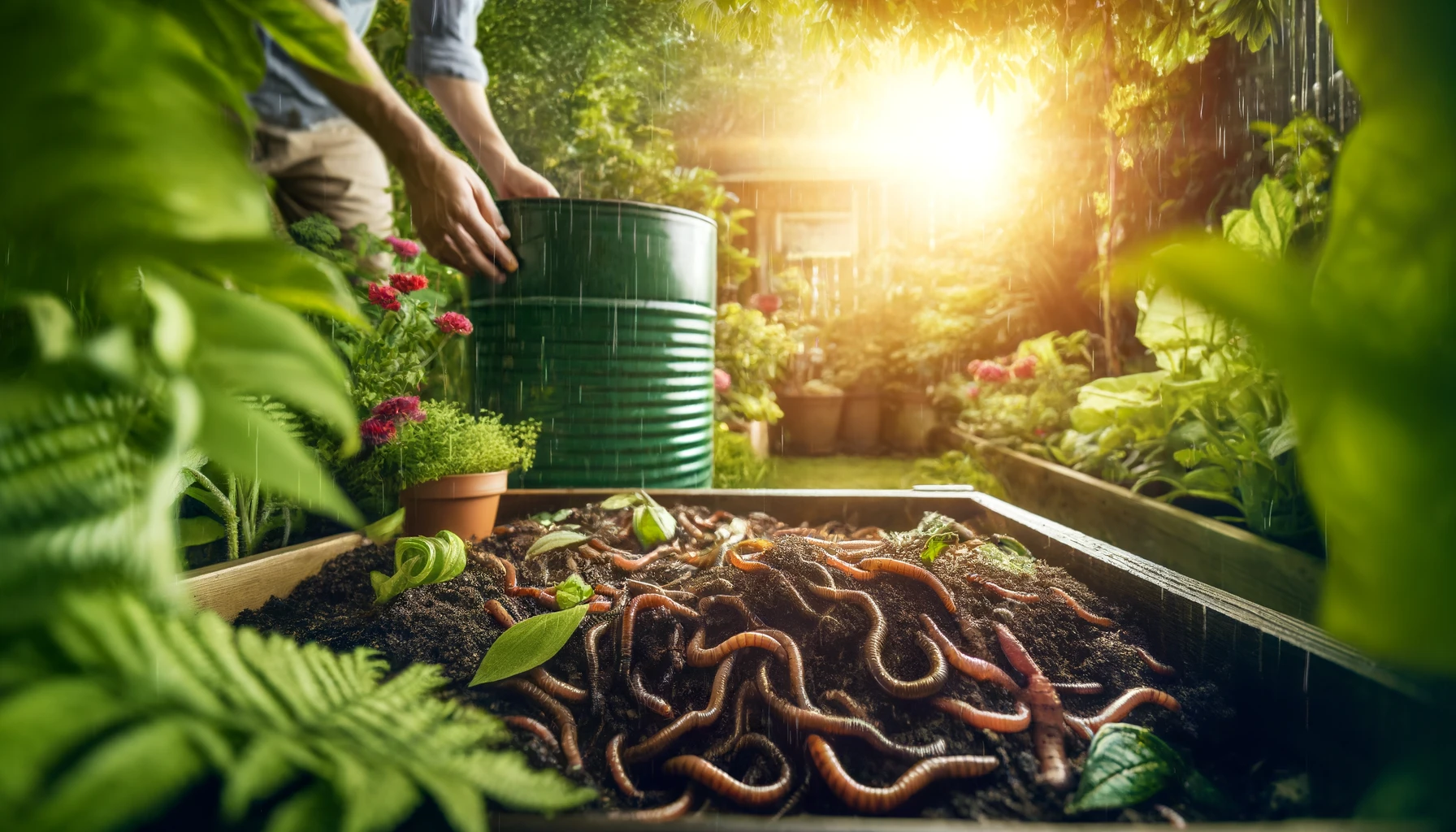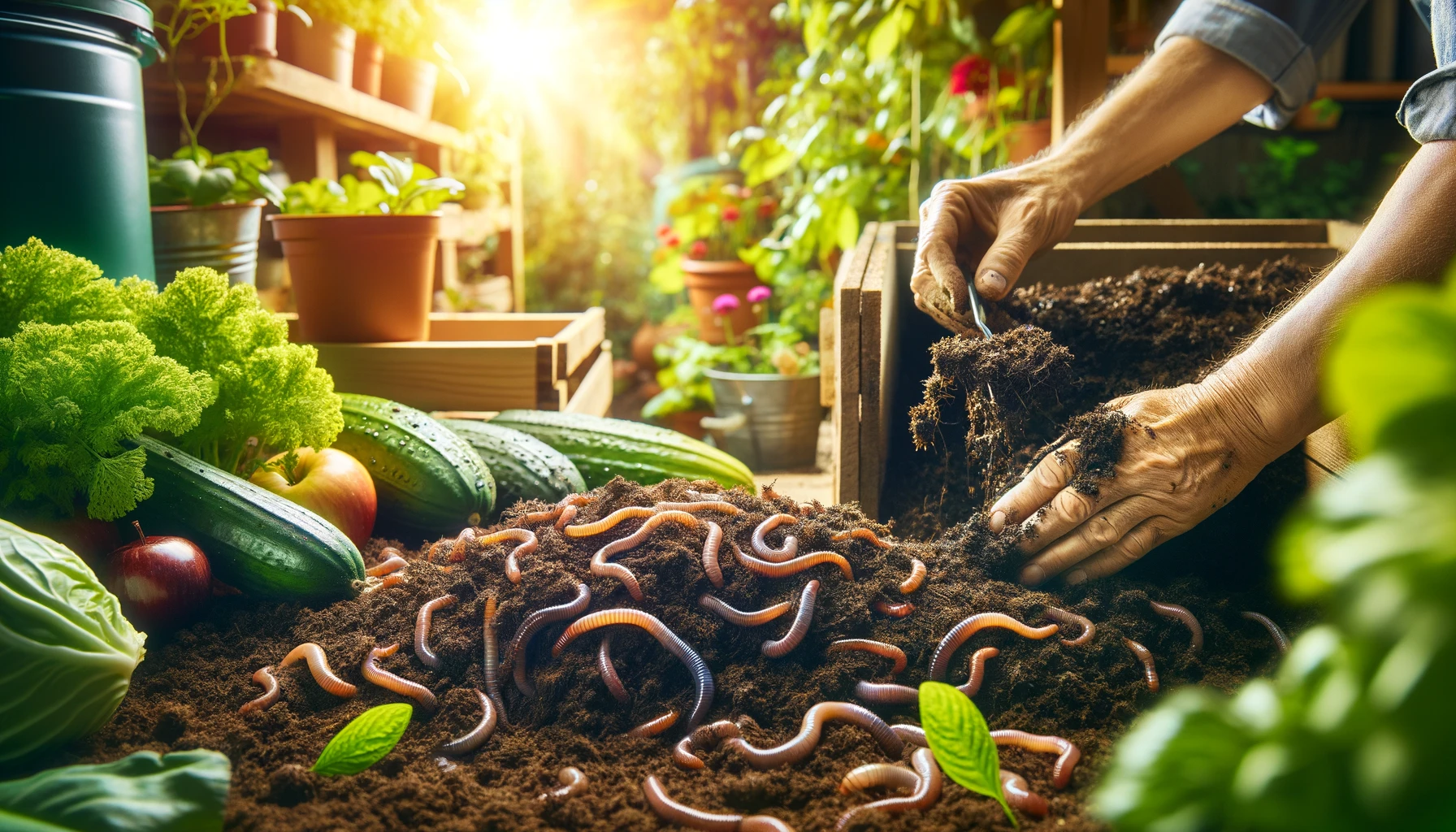Common Mistakes to Avoid When Composting with Worms

Composting with worms is a rewarding and eco-friendly way to recycle organic waste and enrich your garden soil. However, like any new endeavor, it comes with a learning curve. At Terry’s Worm Store, we’re committed to helping you succeed in your composting journey. In this blog post, we’ll highlight some common mistakes to avoid when composting with worms to ensure your vermiculture system thrives.
1. Overfeeding the Worms
The Mistake: One of the most common mistakes beginners make is overfeeding their worms. Adding too much food too quickly can overwhelm the worms and lead to unpleasant odors and pests.
The Solution: Start with small amounts of food and gradually increase as the worms adapt. Monitor how quickly the worms process the food, and only add more when the previous scraps are mostly broken down.
2. Adding the Wrong Foods
The Mistake: Not all food scraps are suitable for worm composting. Adding meat, dairy, oily foods, and citrus can create a hostile environment for the worms and attract unwanted pests.
The Solution: Stick to fruit and vegetable scraps, coffee grounds, tea bags, and crushed eggshells. Avoid adding meat, dairy, greasy foods, and citrus. Always bury the food scraps under the bedding to prevent fruit flies.
3. Neglecting Moisture Levels
The Mistake: Worms need a moist environment to survive and thrive. Too much or too little moisture can harm the worms and affect the composting process.
The Solution: Maintain the bedding’s moisture level like a wrung-out sponge. If it’s too dry, add a small amount of water. If it’s too wet, add dry bedding materials like shredded newspaper or cardboard to absorb excess moisture.
4. Not Providing Enough Bedding
The Mistake: Bedding is essential for worms as it provides a habitat and helps balance moisture levels. Not adding enough bedding can lead to compaction and poor aeration.
The Solution: Ensure the bin is always well-stocked with bedding materials such as shredded newspaper, cardboard, coconut coir, or peat moss. Regularly add fresh bedding to keep the environment comfortable for the worms.

5. Ignoring Temperature Requirements
The Mistake: Worms are sensitive to temperature changes. Extreme temperatures, whether too hot or too cold, can be detrimental to their health.
The Solution: Keep the worm bin in a location where the temperature stays between 55-77°F (13-25°C). Avoid placing the bin in direct sunlight, near heat sources, or in freezing conditions. Insulate the bin if necessary during colder months.
6. Failing to Monitor and Maintain the Bin
The Mistake: A common misconception is that worm bins require no maintenance. Neglecting the bin can lead to problems such as odors, pests, and unhappy worms.
The Solution: Regularly check the bin to ensure it’s functioning well. Fluff the bedding to improve aeration, monitor moisture levels, and check for any signs of pests or disease. Harvest the compost periodically to make space for new bedding and food.
7. Using Non-Compostable Materials
The Mistake: Adding materials that do not break down easily or are harmful to worms can disrupt the composting process.
The Solution: Avoid adding plastic, glass, metal, chemicals, and glossy paper to the bin. Stick to organic materials that worms can easily process.

Conclusion
By avoiding these common mistakes, you can create a thriving vermiculture system that efficiently recycles organic waste and produces high-quality compost for your garden. At Terry’s Worm Store, we’re here to support you with expert advice and high-quality composting supplies. Happy composting!

